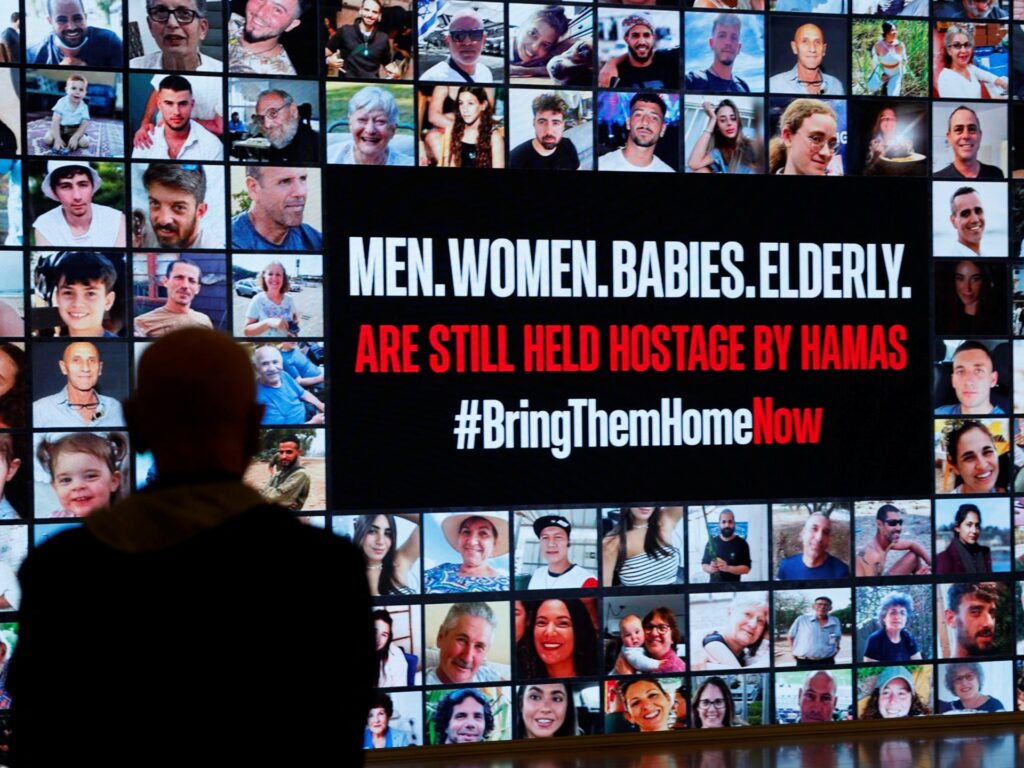Israel’s prime minister managed to secure a truce with Hamas with the support of far-right coalition partners he needs to stay in power, but several cabinet members expressed displeasure with the Palestinian group for granting too much of concessions.
The agreement between Israel and Hamas reached early Wednesday, with the mediation of Qatar, includes, among other measures, a truce of several days and the release of 50 hostages held in Gaza in exchange for 150 Palestinians imprisoned by Israel.
While Israeli Prime Minister Benjamin Netanyahu’s office approved the truce, hardliners such as National Security Minister Itamar Ben-Gvir reiterated their opposition even after the truce was announced.
“Hamas wanted this timeout more than anything else,” Ben-Gvir posted on X, and said the pause would give the group time to restock and reformulate, the dpa news agency reported.
Ben-Gvir also said Wednesday that Israel was repeating past mistakes, referring to a 2011 deal that saw more than 1,000 Palestinian prisoners released in exchange for Israeli soldier Gilad Shalit, who had been held by Hamas for five years.
After a cabinet member said it was important to send a message of unity, Israeli media outlet Ynet reported that Ben-Gvir responded: “But we are not united. This decision will cause us great harm for generations.
Members of Israel’s military and intelligence services responded to questions from lawmakers, who sought to allay concerns that a pause in fighting could dampen Israeli momentum after more than a month of relentless strikes on Gaza .
President Isaac Herzog acknowledged that “the reservations are understandable, painful and difficult,” but added in a statement that, given the circumstances, he supported the government in moving forward with the agreement.
“It is a moral and ethical duty that properly expresses the Jewish and Israeli value of securing the freedom of those held captive, with the hope that this will be the first step toward returning all hostages home.” , Herzog said.
Hamas launched an attack on southern Israel on October 7, which Israeli authorities say killed 1,200 people and kidnapped around 240 people. The deadly assault has shaken Israeli society and divided opinions on the path forward.
Representatives of the Religious Zionist party, led by right-wing Finance Minister Bezalel Smotrich, voted in favor of the truce after expressing skepticism.
In a social media post, Minister of Settlements and National Missions Orit Strock said she voted for the proposal “even though I really had not planned to do so” after “detailed reviews and in-depth answers to questions.
Israel has pledged to eliminate Hamas but faces growing scrutiny over actions in Gaza that critics say amount to indiscriminate punishment of the besieged enclave’s population.
Netanyahu made clear that the agreement does not mean the war will stop and promised that the Israeli military would continue its efforts after the fighting pauses.
Israel cut off access to food, fuel and electricity to Gaza’s more than 2.3 million residents and wiped out entire neighborhoods in an attack that Palestinian authorities say killed more than of 14,000 people, including more than 5,600 children.
As the situation in Gaza reaches breaking point, pressure has increased for a pause in fighting to allow humanitarian aid into the besieged Gaza Strip.
Some Israelis, particularly those who lost loved ones or are still awaiting their return after being kidnapped in the attack, also called on the government to prioritize the return of the hostages.
“No one has been kidnapped abroad. They were kidnapped here in Israel from their beds,” said Regional Cooperation Minister David Amsalem, a member of Netanyahu’s right-wing Likud party. “A huge failure has happened here. So we have to bring them back. »
Israel’s High Court on Wednesday rejected a petition from the Almagor Association of Victims of Terrorism that the deal posed a threat to the country’s security, according to Israeli media.
The petition claimed that the release of some, but not all, captives violated the right to equality, according to the Times of Israel. He had called for a delay in the implementation of the agreement until the government could prove that the truce did not endanger Israeli lives.
A 24-hour period during which the Israeli public could voice legal objections to the government-approved deal began Tuesday evening.

